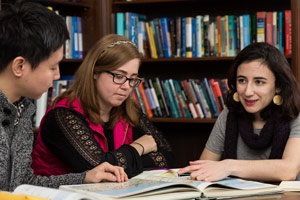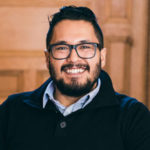2017 Graduate Education | International Affairs
THIS GUIDE IS NO LONGER ACTIVE. For the current FP Guide, click here.
Yale University, Jackson Institute for Global Affairs
Yale University’s Jackson Institute for Global Affairs attracts creative, intellectually curious individuals who are interested in defining their own path to a career in global leadership and service. The Institute’s MA in Global Affairs program is small by design: To allow for each student to receive extensive personalized advising, each year’s class has only 25 to 30 students.
 Students develop a strong academic foundation while also gaining skills they can apply professionally. In addition to completing a semester of core courses in economics, statistics, and history, and a core language requirement, students pursue an individualized course of study. They work with renowned faculty from across the university and take advantage of the Jackson Institute’s partnerships with the schools of law and management, public health, and forestry and environmental studies.
Students develop a strong academic foundation while also gaining skills they can apply professionally. In addition to completing a semester of core courses in economics, statistics, and history, and a core language requirement, students pursue an individualized course of study. They work with renowned faculty from across the university and take advantage of the Jackson Institute’s partnerships with the schools of law and management, public health, and forestry and environmental studies.
“The program is small, tailored, and flexible, but we have the reach of a global university,” says Lloyd Grieger, director of graduate studies and assistant professor of sociology and global affairs.
Students also participate in seminars with senior fellows from the public and private sectors, such as New York Times columnist David Brooks and former U.S. Ambassador to Syria Robert Ford. “We have high-level discussions about current affairs with people who are really shaping the public discussion,” says Grieger.
A distinguishing feature of the program is its emphasis on a strong academic foundation combined with applied skills. Focusing on global regions and issues as well as academic theory, the program bridges the gap between theory and practice.
“We are interested in developing analytical, policy-focused individuals,” says Grieger. “We train our students to be interlocutors—to be able to bridge the academic, public, private, and non-profit sectors in global affairs.”

“You can study classical and theoretical concepts here and still get a job in the real world. Our students are equipped to think about how to brand themselves for the ever-changing job market.” –Lloyd Grieger, Director of Graduate Studies, Jackson Institute for Global Affairs, Yale University
To that end, core courses are taught by international relations specialists who link foundational training with pressing issues in global affairs. “We offer our students a basket of skills they can apply to international affairs, including the right combination of applied public policy skills and theoretical training,” says Grieger.
Each student has an adviser who focuses on the program’s technical requirements, a faculty adviser who helps plan the student’s intellectual trajectory, and a career adviser. At the start of each term, students meet with each of their three advisers, and the advisers also meet with one another.
“We put a lot of thought into opportunities for people to think about their careers,” says Grieger. “You have to be as interested in your future as we are in your future.” Rather than following tracks or well-worn paths, students engage in self-discovery and self-directed trajectories.
The result? “You can study classical and theoretical concepts here and still get a job in the real world,” says Grieger.
Master’s Degrees offered: See Program Directory
Receive School Information: See Request Info
Contents
- 2017 Graduate Education | International Affairs
- Association of Professional Schools of International Affairs (APSIA)
- The George Washington University, Elliott School of International Affairs
- New York University School of Professional Studies (NYUSPS), Center for Global Affairs (CGA)
- UC San Diego, School of Global Policy and Strategy (GPS)
- Georgetown University, Walsh School of Foreign Service (SFS)
- The Fletcher School of Law and Diplomacy at Tufts University
- Yale University, Jackson Institute for Global Affairs
- Seton Hall University, School of Diplomacy and International Relations
- Penn State School of International Affairs
- The New School, Graduate Program in International Affairs
- Boston University, Frederick S. Pardee School of Global Studies
- University of Minnesota, Humphrey School of Public Affairs
- University of Denver, Josef Korbel School of International Studies
- Johns Hopkins University, School of Advanced International Studies (SAIS)
- SOAS University of London
- University of Kent, Brussels School of International Studies (BSIS)
- Fordham University, Graduate Program in International Political Economy and Development (IPED)
- The University of Texas at Austin, Lyndon B. Johnson School of Public Affairs
- Syracuse University, Maxwell School of Citizenship and Public Affairs

